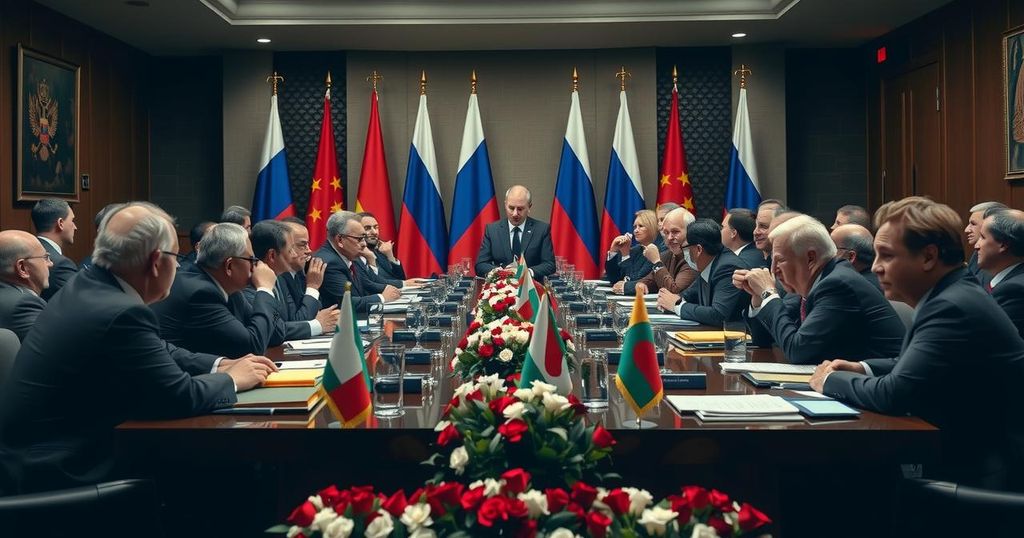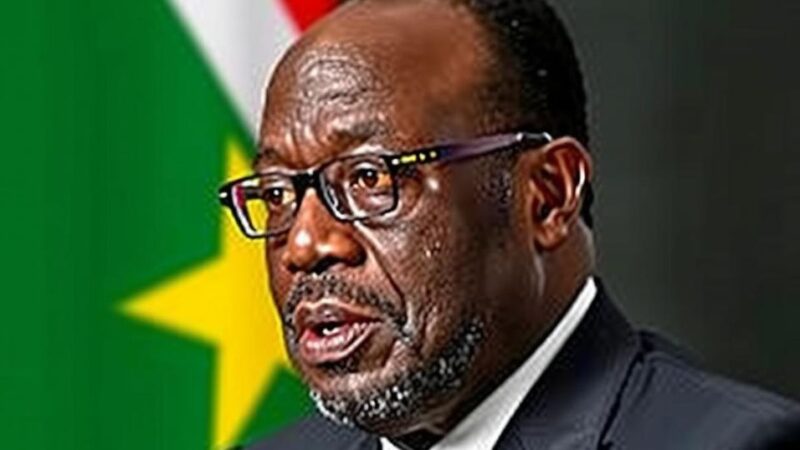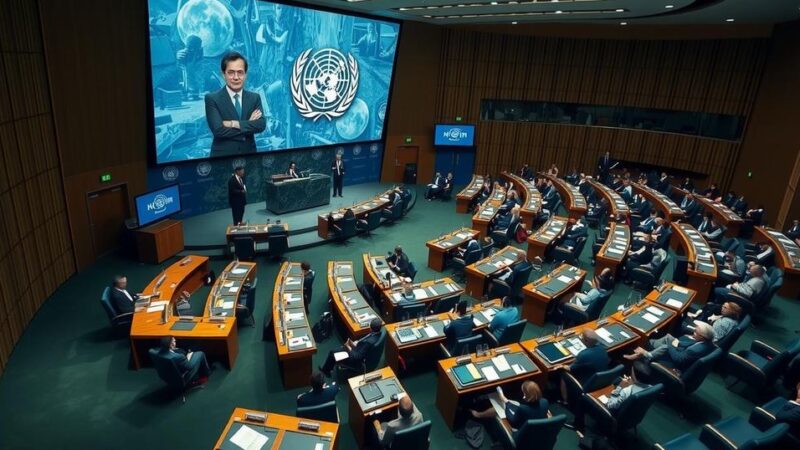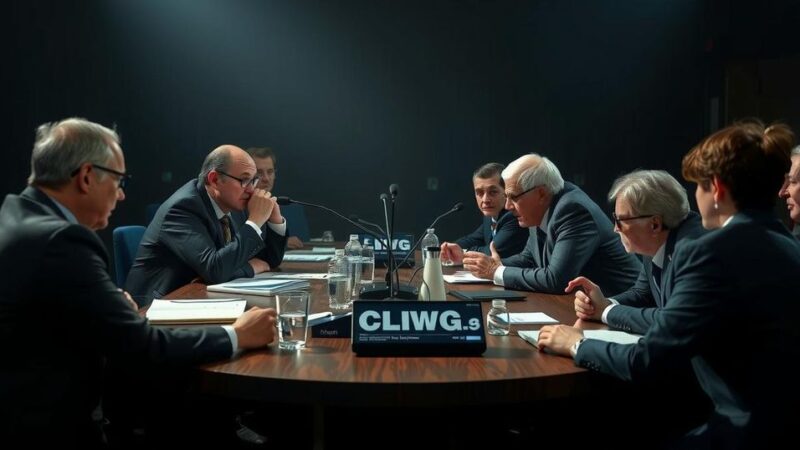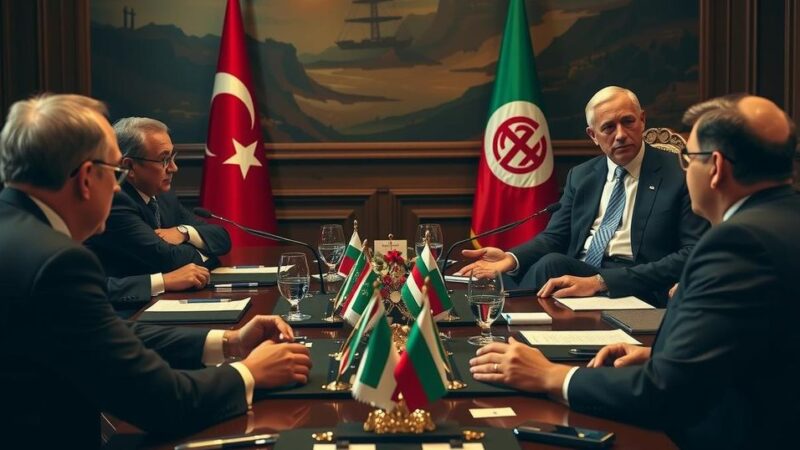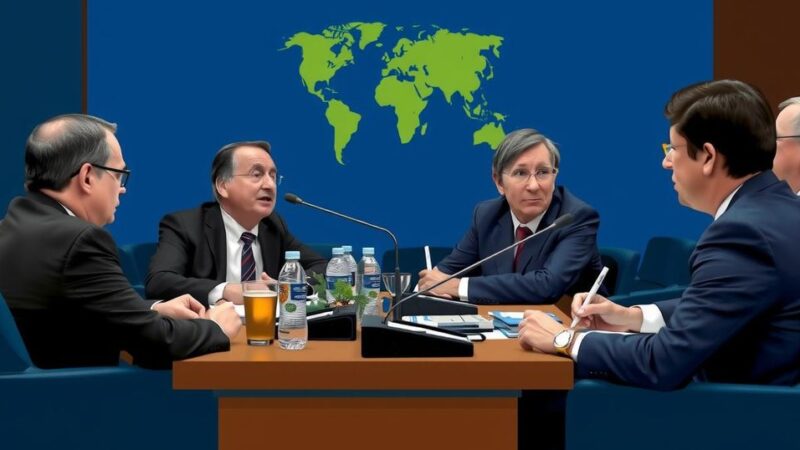President Vladimir Putin hosted 36 world leaders at the Brics summit in Kazan, a notable international gathering amidst his isolation from the West due to an ICC arrest warrant. The summit aimed to present a unified front against U.S. dollar dominance in international finance. Discussions included key one-on-one meetings with Xi Jinping and Narendra Modi, amidst varying degrees of commitment among Brics members regarding economic independence and geopolitical strategies.
At the Brics summit in Kazan, Russia, President Vladimir Putin hosted 36 world leaders, including prominent figures from China, India, and Iran. This summit marks a significant international gathering for Putin, particularly as he faces isolation from Western nations and scrutiny from the International Criminal Court (ICC) due to an arrest warrant for alleged war crimes related to the abduction of Ukrainian children. The participation of António Guterres, the UN Secretary-General, remains uncertain as Moscow has suggested he intends to attend despite potential backlash from Ukraine and Western allies. Putin’s meetings included pivotal one-on-one discussions with Indian Prime Minister Narendra Modi and Chinese President Xi Jinping, alongside 15 additional bilateral engagements. Russia asserts that the Brics group, which has expanded to include countries like Egypt, the United Arab Emirates, and Iran, embodies a new global order that counters Western dominance, particularly in economic matters. A central theme of the summit is the aim of establishing alternatives to the dominance of the U.S. dollar in global transactions, which is perceived by many non-Western nations as a tool for American political leverage through economic sanctions. Iranian President Masoud Pezeshkian articulated this sentiment, stating that “Brics can be a way out of American totalitarianism and create a path of multilateralism.” Despite the aspiration for unity among Brics members, ideological differences persist. Brazil and India exhibit a more tempered desire to reduce dollar dependence compared to Russia and China. Consequently, Brazilian President Luiz Inácio Lula da Silva has clarified that Brics is not positioned against any specific nation. Experts observe this summit as a significant diplomatic win for Putin, reinforcing the narrative that Russia is not as isolated as it may appear. According to Alex Gabuev of the Carnegie Russia Eurasia Centre, the outcome communicates that Russia is a key component of a dynamic bloc shaping the future of global governance. Putin’s non-attendance at the previous summit indicates a careful approach to international engagements in light of the ICC warrant. Yet, recent developments, including the possibility of Donald Trump’s return to power and a potential shift in European attitudes towards negotiations in Ukraine, may bolster Putin’s confidence. This shift raises the expectation that Ukraine may soon engage in dialogue with Russia regarding its territorial status amid ongoing military operations.
The Brics group comprises Brazil, Russia, India, China, and South Africa, and has evolved to include several additional countries, aiming to foster cooperation and economic collaboration among emerging markets. In recent years, particularly following geopolitical shifts due to the Ukraine conflict, Brics has emerged as a platform for nations seeking to curtail U.S. financial and political influence through alternatives to Western economic practices. The summit signifies not only Russia’s attempts at international engagement despite the consequences of its military actions but also reflects the complexities and diverging interests within the group, as members navigate their positions on global financial systems and political alignments.
In conclusion, the Brics summit serves as a pivotal event for President Putin, allowing him to assert Russia’s role on the global stage amidst ongoing conflict and sanctions. The participation of diverse international leaders highlights both the potential for a restructured geopolitical landscape and the ideological frictions within Brics. This gathering underscores attempts to forge economic pathways independent of U.S. dominance while presenting a united front against Western sanctions. However, challenges remain as member nations balance their national interests with collective objectives.
Original Source: www.theguardian.com
